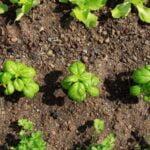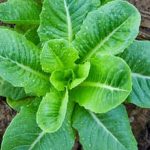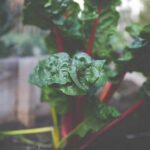Are you looking to create a thriving vegetable garden with the best fertilizers for vegetable gardens? Fertilizers play a crucial role in providing essential nutrients to your vegetable plants, promoting healthy growth and maximizing yield. In this article, we will explore the different types of fertilizers, the importance of understanding essential nutrients for vegetable plants, and the best practices for fertilizing your vegetable garden.
Fertilizers are a key component in maintaining a successful vegetable garden. Whether you’re a seasoned gardener or just starting out, understanding the role of fertilizers is essential for producing healthy and abundant crops. By choosing the right fertilizers and applying them correctly, you can ensure that your vegetables receive the necessary nutrients for optimal growth.
In this article, we will delve into the difference between organic and synthetic fertilizers, identify the essential nutrients needed by your vegetable plants, and provide recommendations on top organic and synthetic fertilizers for your garden. Additionally, we will offer tips on how to choose the right fertilizer for your specific garden needs and apply them properly to maximize growth and yield. Let’s get started on creating a flourishing vegetable garden with the best fertilizers available.
The Different Types of Fertilizers
When it comes to fertilizing your vegetable garden, one of the most important decisions you’ll need to make is whether to use organic or synthetic fertilizers. Each type has its own advantages and disadvantages, so it’s essential to understand the differences between the two before making a decision.
Organic Fertilizers
Organic fertilizers are derived from natural sources such as compost, manure, bone meal, and fish emulsion. These fertilizers release nutrients slowly, providing a steady source of nutrition for your plants over time. They also improve soil structure and promote beneficial soil microorganisms, leading to healthier and more resilient plants.
One of the key benefits of organic fertilizers is that they are environmentally friendly and sustainable. They are less likely to leach into groundwater or contribute to nutrient runoff, making them a popular choice for organic gardeners and environmentally-conscious individuals. Additionally, they are gentler on plants, reducing the risk of fertilizer burn.
Synthetic Fertilizers
On the other hand, synthetic fertilizers are manufactured in a laboratory using chemical compounds. They provide an immediate boost of specific nutrients to plants, making them a quick and effective solution for addressing nutrient deficiencies. Synthetic fertilizers are also highly concentrated, meaning smaller amounts can be used to achieve significant results.
Despite their effectiveness, synthetic fertilizers have some drawbacks. Overuse can lead to excessive salt buildup in the soil, which can harm soil structure and microbial activity. Additionally, they do not contribute organic matter to the soil and can have negative environmental impacts if not used responsibly.
At the end of the day, whether you choose organic or synthetic fertilizers for your vegetable garden depends on your gardening goals, values, and specific needs. It’s crucial to carefully weigh these factors when deciding which type of fertilizer is best for your garden’s overall health and productivity.
Essential Nutrients for Vegetable Plants and How Fertilizers Provide Them
Vegetable plants, like all plants, require essential nutrients to grow and thrive. These essential nutrients are critical for plant development, fruit production, and overall plant health. The primary macronutrients required by vegetable plants are nitrogen, phosphorus, and potassium, often referred to as NPK. In addition to these macronutrients, vegetable plants also need secondary nutrients such as calcium, magnesium, and sulfur, as well as micronutrients like iron, manganese, zinc, copper, boron, molybdenum, and chlorine.
How Fertilizers Provide Essential Nutrients
Fertilizers play a crucial role in providing these essential nutrients to vegetable plants. Organic fertilizers contain natural ingredients such as composted manure, bone meal, blood meal, fish emulsion, and kelp that provide a slow release of nutrients as the organic matter breaks down. On the other hand, synthetic fertilizers are formulated with specific ratios of NPK and other essential nutrients to deliver quick-acting nutrition to the plants.
The Role of Nitrogen
Nitrogen is particularly important for leafy vegetable crops because it promotes vigorous leafy growth. It is responsible for the green color in leaves and is critical for photosynthesis. Organic sources of nitrogen include composted manure and blood meal while synthetic sources include ammonium sulfate and urea.
Best Practices for Fertilizing Vegetable Gardens
Fertilizing vegetable gardens is essential for promoting healthy plant growth and a bountiful harvest. However, it’s important to follow best practices to ensure that you are providing the right nutrients at the right time without harming your plants or the environment. Here are some dos and don’ts to keep in mind when fertilizing your vegetable garden.
First and foremost, do test your soil before adding any fertilizers. A soil test can help you determine the nutrient levels in your soil, allowing you to choose the appropriate fertilizer formulation for your specific needs. This can prevent over-fertilization, which can lead to nutrient imbalances and damage to your plants.
Another important “do” is to follow the recommended application rates for the fertilizer you are using. Over-fertilizing can harm plants and contribute to water pollution as excess nutrients wash away into water systems. On the other hand, under-fertilizing can result in poor plant growth and low yields. Following application instructions carefully will help you achieve optimal results.
When it comes to “don’ts,” avoid applying fertilizers too close to plant stems or leaves. This can cause burning or scorching of plant tissues. Instead, apply fertilizers evenly around the root zone of the plants, where they can be taken up effectively by the roots. Additionally, do not apply fertilizers during times of drought or extreme heat, as this can further stress plants and lead to damage.
By following these dos and don’ts for fertilizing your vegetable garden, you can ensure that you are providing essential nutrients for healthy plant growth while minimizing negative impacts on the environment. Using the best fertilizers for vegetable gardens in a responsible manner will help you achieve a thriving garden with an abundant harvest.
Top 5 Best Organic Fertilizers for Vegetable Gardens
When it comes to choosing the best fertilizers for vegetable gardens, organic options are often preferred by many gardeners due to their eco-friendly and sustainable nature. Organic fertilizers are derived from natural sources and contain beneficial microorganisms that help improve soil fertility. They also release nutrients slowly, providing a steady and long-lasting food source for your vegetable plants.
One of the best organic fertilizers for vegetable gardens is compost. Compost is made from decomposed organic materials such as kitchen scraps, yard waste, and manure. It’s rich in essential nutrients like nitrogen, phosphorus, and potassium, making it a great all-around fertilizer for your vegetables.
Another top organic fertilizer option is fish emulsion. This liquid fertilizer is made from fish remains and has high levels of nitrogen, which is essential for foliage growth in vegetable plants. It also contains trace minerals that can benefit overall plant health.
Lastly, seaweed-based fertilizers are also considered one of the best fertilizers for vegetable gardens. They are packed with an array of nutrients like potassium, magnesium, and zinc that can promote strong root development and improve stress tolerance in your vegetable plants.
| Organic Fertilizer | Main Nutrients |
|---|---|
| Compost | Nitrogen, Phosphorus, Potassium |
| Fish Emulsion | Nitrogen, Trace Minerals |
| Seaweed-based Fertilizer | Potassium, Magnesium, Zinc |
Top 5 Best Synthetic Fertilizers for Vegetable Gardens
When it comes to choosing the best fertilizers for vegetable gardens, synthetic options can offer a range of benefits. Synthetic fertilizers are engineered to provide specific ratios of essential nutrients that are readily available for plant uptake. This can be especially beneficial for gardeners looking to quickly boost the growth and yield of their vegetable plants. Here are the top 5 best synthetic fertilizers for vegetable gardens:
1. Miracle-Gro Water Soluble All Purpose Plant Food: This popular synthetic fertilizer is known for its quick-acting formula that provides a balanced mix of nutrients for vegetables. It is easy to use and can be applied through watering cans or garden sprayers.
2. Scotts Turf Builder Lawn Food: While designed for lawns, this nitrogen-rich synthetic fertilizer can also benefit vegetable gardens by promoting healthy green growth. It is suitable for use on a wide range of vegetable plants, providing them with the nitrogen they need to thrive.
3. Osmocote Smart-Release Plant Food Flower & Vegetable: This synthetic fertilizer is specially formulated to meet the nutritional needs of flower and vegetable plants. Its slow-release formula ensures that nutrients are continuously available to the plants over an extended period.
4. Jobe’s Organics Vegetable & Tomato Fertilizer Spikes: These convenient spikes deliver a balanced blend of essential nutrients directly to the root zone of vegetable plants. Made from organic materials, these spikes provide a reliable source of nutrition for your garden.
5. Espoma Garden-Tone Organic Fertilizer: While technically classified as an organic fertilizer, Garden-Tone contains some synthesized ingredients such as urea and ammonium phosphate that make it a great hybrid option for those looking for organic benefits with synthetic effectiveness.
When choosing a synthetic fertilizer for your vegetable garden, it’s important to consider factors such as N-P-K ratio, application method, and potential environmental impact. By selecting the right synthetic fertilizer and using it according to recommended guidelines, you can help ensure healthy and bountiful harvests from your vegetable garden.
How to Choose the Right Fertilizer for Your Specific Vegetable Garden Needs
When it comes to choosing the best fertilizers for your specific vegetable garden needs, there are a few key factors to consider. Whether you are opting for organic or synthetic fertilizers, it’s important to assess the specific requirements of your vegetable plants. One of the first things to consider is the nutrient composition of the fertilizer and how it aligns with the needs of your vegetables.
Factors to Consider When Choosing Fertilizers
- Soil Composition: Assess the pH levels and nutrient content of your soil to determine which fertilizers will be most beneficial for your vegetables.
- Vegetable Types: Different vegetables have unique nutrient requirements, so it’s essential to choose a fertilizer that provides the necessary nutrients for the specific types of vegetables you are growing.
- Growth Stage: Consider the growth stage of your vegetable plants – whether they are in the seedling stage, vegetative stage, or flowering/fruiting stage – as this will impact their nutrient needs.
Once you have assessed these factors, you can then explore different options for fertilizers that best suit your specific vegetable garden needs.
Options for Fertilizers
- Organic Fertilizers: For those seeking natural and environmentally friendly options, organic fertilizers such as compost, manure, bone meal, and fish emulsion can provide essential nutrients while also improving soil health and structure.
- Synthetic Fertilizers: If you require a more immediate and precise nutrient application, synthetic fertilizers may be suitable. Options such as nitrogen-based, phosphate-based, and potassium-based fertilizers provide targeted nutrients to meet specific plant requirements.
By carefully considering these factors and exploring different fertilizer options, you can choose the right fertilizer that aligns with your specific vegetable garden needs, ultimately promoting healthy growth and abundant yields.
Tips for Properly Applying Fertilizers to Maximize Growth and Yield
Proper application of fertilizers is crucial for maximizing the growth and yield of vegetable plants in your garden. Whether you are using organic or synthetic fertilizers, it’s important to follow the dosages and application methods recommended on the product label. Here are some tips for properly applying fertilizers to ensure that your vegetable garden thrives.
First and foremost, it’s essential to conduct a soil test before applying any fertilizers to your vegetable garden. This will help you determine the nutrient levels in your soil and identify any deficiencies that need to be addressed. Once you know what nutrients your soil needs, you can choose the best fertilizers for vegetable gardens that will provide those specific nutrients.
When applying fertilizers, it’s important to follow the recommended dosage rates. Over-fertilizing can lead to nutrient imbalances in the soil, which can be harmful to your plants and may even reduce yields. Under-fertilizing, on the other hand, may result in stunted growth and poor fruit production. Carefully measure out the appropriate amount of fertilizer based on the instructions provided by the manufacturer.
In addition to following dosage recommendations, proper timing of fertilizer applications is also important. Many vegetable plants have specific stages of growth when they require increased amounts of certain nutrients. For example, nitrogen is crucial during periods of rapid vegetative growth, while phosphorus is vital for root development and fruit production. By understanding the nutrient needs of your specific vegetables at different stages of growth, you can time fertilizer applications to provide the most benefit.
By following these tips for properly applying fertilizers, you can maximize the growth and yield of your vegetable garden, ultimately leading to a bountiful harvest of fresh and healthy produce. When choosing among the best fertilizers for vegetable gardens, consider factors such as nutrient content, dosage recommendations, and application methods to ensure that your plants receive the nourishment they need to thrive.
Conclusion
In conclusion, the type of fertilizer you choose for your vegetable garden can have a significant impact on the health and yield of your plants. Whether you opt for organic or synthetic fertilizers, it’s important to provide your vegetable plants with the essential nutrients they need to thrive. By understanding the specific needs of your garden and choosing the best fertilizers for vegetable gardens, you can ensure that your plants receive the proper nourishment for optimal growth.
When it comes to organic fertilizers, options such as compost, fish emulsion, and seaweed extract can provide valuable nutrients while also improving soil structure and microbial activity. On the other hand, synthetic fertilizers like granular or water-soluble formulas offer precise control over nutrient levels and quick absorption by plants.
By considering factors such as nutrient content, application method, and environmental impact, you can make an informed decision about which type of fertilizer is best suited for your specific garden needs.
Ultimately, proper application of fertilizers is just as important as choosing the right type. Following dos and don’ts for fertilizing vegetable gardens-such as avoiding over-fertilization and timing applications appropriately-can prevent damage to plants and surrounding ecosystems while maximizing growth and yield. With careful consideration and implementation of best practices, you can harness the full potential of the best fertilizers for vegetable gardens to cultivate a bountiful harvest year after year.
Frequently Asked Questions
What Is the Best Fertilizer to Put on a Vegetable Garden?
The best fertilizer to put on a vegetable garden is one that is balanced and specifically formulated for vegetables. Look for a fertilizer with an N-P-K ratio of 10-10-10 or 12-12-12, which provides a good mix of nutrients for overall plant growth.
Is 10-10-10 Good for Vegetable Garden?
A 10-10-10 fertilizer can be good for a vegetable garden, as it provides a balanced mix of nitrogen, phosphorus, and potassium. However, it’s important to consider the specific nutrient needs of the vegetables in your garden and adjust the fertilizer accordingly.
What Is the Best Fertilizer for Peppers and Tomatoes?
The best fertilizer for peppers and tomatoes is one that is higher in phosphorus and potassium, such as a 5-10-10 or 8-16-16 blend. These nutrients support flowering, fruiting, and overall plant health, which are important for both peppers and tomatoes.

If you’re looking to get into vegetable gardening, or are just looking for some tips on how to make your current garden better, then you’ve come to the right place! My name is Ethel and I have been gardening for years. In this blog, I’m going to share with you some of my best tips on how to create a successful vegetable garden.





